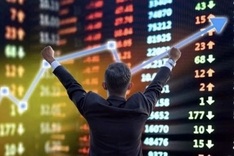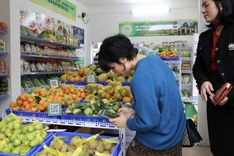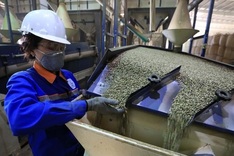It is "reassuring" to see Vietnam rebalancing its economic policy toward stability, but more turbulence could be on the cards as the global economy continues to recover, the World Bank said on Thursday.
Even as monetary policy tightens, inflation is likely to see some acceleration in Vietnam in 2010, it said in a semi-annual report.
"It is reassuring to see that the government is rebalancing its objectives once again, giving more priority to stability. The decisions made between late October and early December amount to an appropriate macroeconomic framework being put in place," it said.
Vietnam's macroeconomic management for the past two years has so far been effective, despite having a relatively "heterodox and at times rudimentary nature", the Bank said in its report, entitled "Taking Stock".

Move to tighten monetary policy is to ensure a reasonable credit growth rate
Vietnam had taken a series of small steps starting in October to begin to tighten monetary policy, capped by last week's currency devaluation and interest rate hike. The government also announced this week an end to subsidies on short-term business loans, which has been a pillar of its stimulus package.
The moves were designed to address imbalances that emerged during roughly a year of expansionary monetary and fiscal policy to counter the global economic crisis, including chronic currency weakness spurred by dollar hoarding and expectations of depreciation.
“The termination of the program is in line with the interest-rate policy and the market stabilisation and will help businesses to increase their competitiveness,” Nguyen Dong Tien, the deputy governor of the State Bank of Vietnam, said in a statement.
A government report on Thursday said it would "transfer from loose monetary policy to cautious, flexible monetary policy to ensure a reasonable credit growth rate, thus supporting the targets of macroeconomic stability, economic development and inflation prevention."
It said it would be "proactive and efficient" in its use of monetary and financial tools to ensure stability.
Analysts expect Vietnam’s gross domestic product to grow about 5 per cent this year in contrast to many of its neighbours, which are expected to see their economies shrink.
The government’s stimulus programme – which was touted at $8bn (€5.3bn, £4.8bn) but has actually cost nearer $4bn, or 4.3 per cent of GDP, according to the World Bank – has contributed significantly to growth.
Martin Rama, chief economist for the World Bank in Vietnam, says the scaling back of the stimulus is timely.
“The interest rate subsidy scheme was very instrumental in the early days of the crisis,” he said but added that once the working capital requirements had been fulfilled, the take up-on loans had declined substantially and many of the companies that were latterly availing themselves of the facility were using the loans to buy dollars and gold, putting downward pressure on the dong, the Vietnamese currency.
“It is going to be painful for some but the government are counting on that to make borrowers sell gold and dollars to pay the loans back,” said Mr Rama.




















